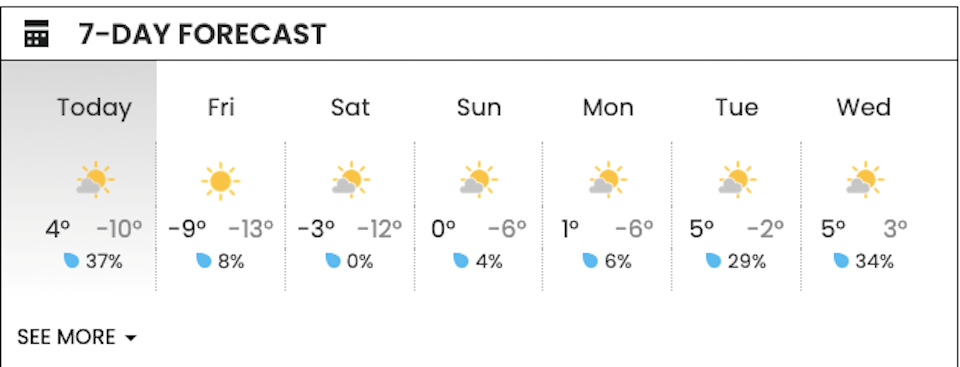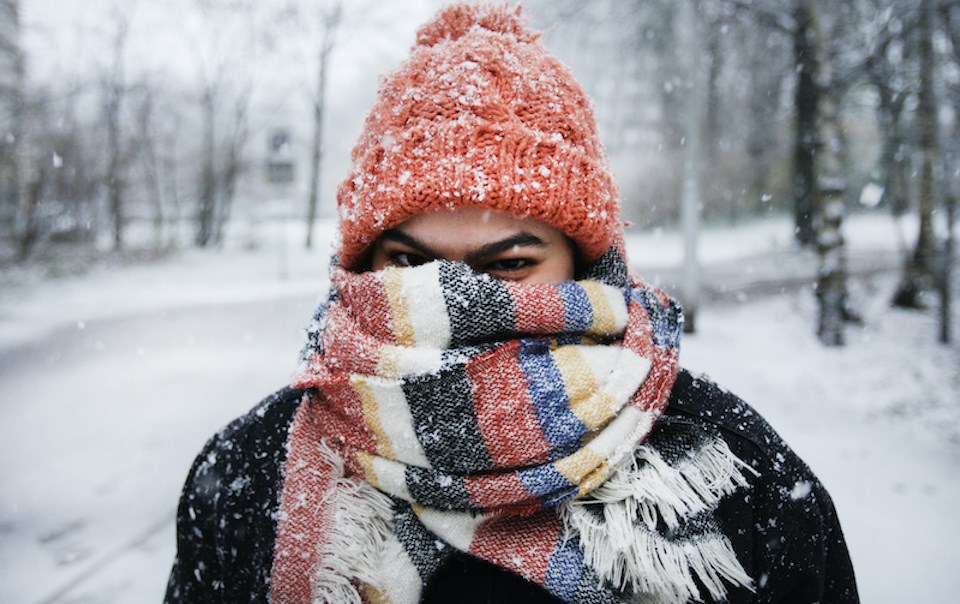Environment Canada has issued an Arctic outflow warning as powerful winds make bone-chilling temperatures feel even colder across Metro Vancouver.
Locals woke up to bluebird skies in the morning on Thursday, Jan. 11, with temperatures expected to climb up to a daytime high of 4 C, according to V.I.A.'s Downtown Centre Weatherhood station.
Temperatures are expected to fall dramatically overnight, falling from a chilly -10 C to as low as - 13 C; the overnight lows vary across the 50 neighbourhoods in which Weatherhood collects hyperlocal information.
But strong outflow winds gusting up to 60 km/h are expected to make temperatures feel as cold as -20 C overnight.
While the wind chill values are expected to be "moderate" by Saturday afternoon, the timing of the warm-up remains uncertain. However, Sunday is expected to be significantly warmer.
Downtown Vancouver's forecast includes a high of freezing and a low of -6 C.
There is the possibility for flurries throughout the day and into the evening on Thursday, too.
Environment Canada meteorologist Armel Castellan told V.I.A. in a previous interview that ice may form on roadways and sidewalks if snowfall accumulates; there would need to be 2 to 4 cm of accumulation for this to be a significant concern.
Metro Â鶹´«Ã½Ó³»weather forecast includes dangerous cold
Castellan characterizes the cold event as the first true "arctic blast of the season," cautioning people to prepare for the "dangerous" weather.
"People haven't been forced to adapt to this cold. We haven't had a winter yet," he remarked, noting that Â鶹´«Ã½Ó³»just had its warmest December on record.
"This will be similar to the first heat of the season: heat and cold are by far the strongest killers."
Environment Canada warns that frostbite and hypothermia can occur within minutes if adequate precautions are not taken when outside.
"Any skin exposure will result in frostbite. If outside, dress warmly in layers and stay dry. Cover as much exposed skin as possible to avoid frostbite," advises the weather department in its advisory.
There is another possibility of snowfall next week as a northwesterly flow brings a band of moisture to the region.
Local governments and community organizations in the VCH region operate (like libraries and community centres) where people can safely stay warm and avoid exposure to the cold.
Find out everything you need to know about travel during the cold weather event in B.C. and beyond.





